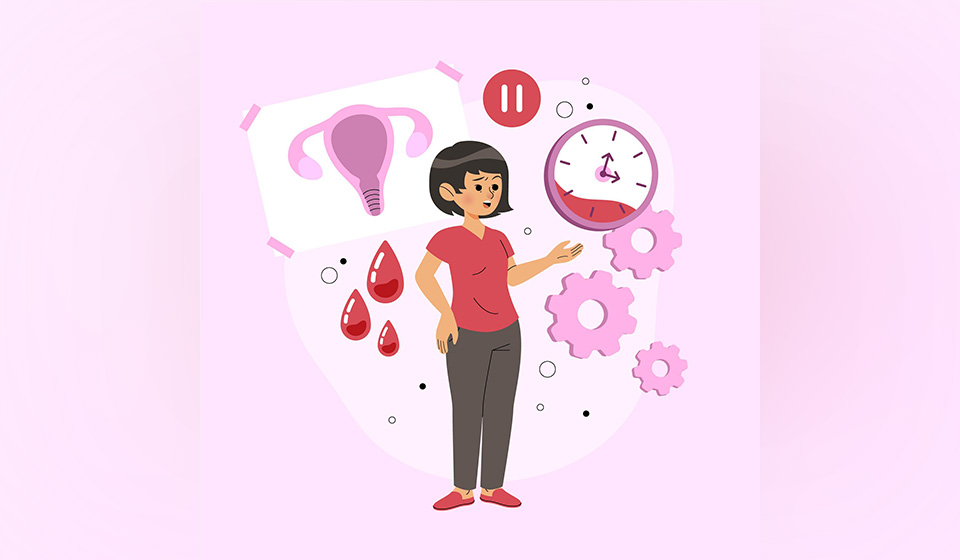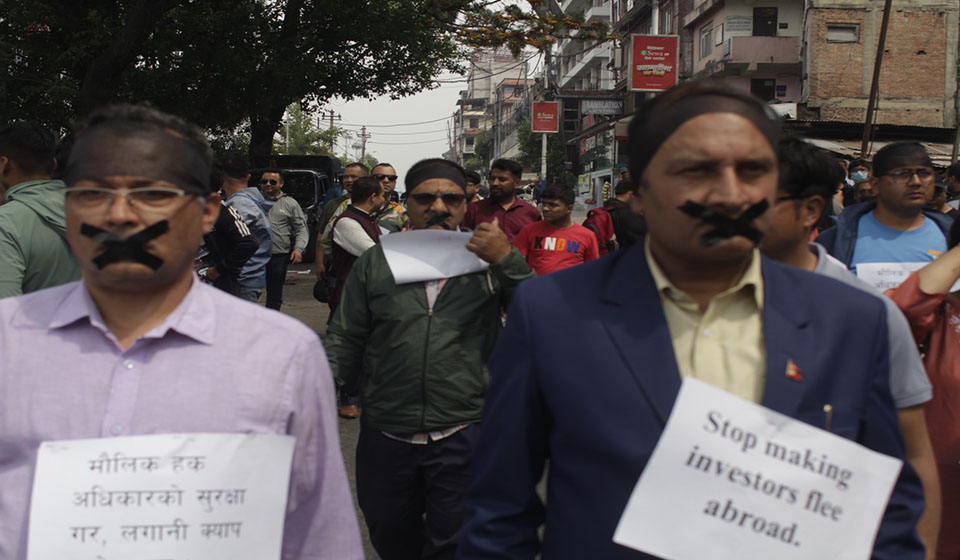
OR
#OPINION
Forgotten issue in Global Health Agenda
Published On: January 13, 2024 08:15 AM NPT By: Silviya Chaulagain


Silviya Chaulagain
The author is Research Officer at Center for Research Environment Health and Population Activities (CREHPA)news@myrepublica.com
More from Author
When we hear the words “menstruation” or “menstrual health” what comes to our mind? What associations do we make? Perhaps our thoughts would most likely revolve around menstrual restrictions, taboos, sanitary pads, etc. However, if we hear terms like maternal health, gender equality, water and sanitation, we will not only talk about contextual issues, but quite possibly link them with the global agendas like Sustainable Development Goals (SDGs). With this, I’m trying to redirect our attention towards a neglected issue – menstrual health, which global health and developmental agendas have overlooked for a long time.
Menstrual Health was neither the agenda of the International Conference on Population and Development (ICPD) nor the Millennium Declaration. Furthermore, it is not explicitly mentioned in the SDGs, even though addressing menstrual health issues is crucial for advancing progress across various SDGs such as Goal 3 (good health and well-being), Goal 4 (improved education), Goal 5 (gender equality), and Goal 6 (water and sanitation) and Goal 11 (reduced waste generation). However, during the 50th session of human right council, a statement on menstruation was made.
The human right council in 2022 mentioned that they were pleased to be addressing a topic on menstruation for the VERY-FIRST TIME. Yes, for the very first time in history, menstruation was acknowledged as a human right issue and an important determinant to achieving MDGs. Following this, the World Health Organization’s (WHO) 50th session recognized menstruation as a health and human rights issue calling for three clear actions. Firstly, to recognize and frame menstruation as a health issue rather than a hygiene issue. Secondly, to provide access to menstrual products, information, education, water, sanitation, and disposal facilities. Thirdly, to incorporate these activities into the appropriate sectoral work plans and budgets and measure their performance. Despite the statement coming late in 2022, recognizing menstruation as a human right and health issue gives us hope that the long-neglected issues of menstruation will start receiving attention at the global and national level. Globally and nationally, there is a significant gap in policies and research related to menstruation. Among the limited studies and policies, the predominant focus has been on menstrual hygiene management (MHM). While we recognize the importance of MHM, it is equally important to move beyond it, and explore other crucial but overlooked aspects of menstruation. Before delving straight into these components, it is important to look at the findings from research that brought them to light.
In 2019, the Center for Research Environment Health and Population Activities (CREHPA), a non-for-profit research organization based in Lalitpur, Nepal conducted a pilot study among 400 adolescent girls in Dailekh district. The findings revealed that the majority of adolescent girls missed school due to period pain, and those experiencing menstrual pain were at an increased risk of depression. However, up until now, programs and policies in Nepal have mostly focused on distribution of free sanitary pads, construction of gender-friendly toilets, and increasing access to water, sanitation and hygiene to reduce school absenteeism. While these programs are needed, it is evident that they are largely focused on MHM and targeted at school-going adolescent girls. But, what about girls who are out of school? Girls undergoing period pain? Girls experiencing depression because of menstrual pain? And what about the environmental impact caused by non-biodegradable sanitary pads, which takes more than 500 years to decompose?
After completing the pilot study, research scientists at CREHPA and the University of Bath, United Kingdom began pondering on the above questions. As an answer, a research study named “MENSTRUAL JUSTICE” was conceptualized and designed and was able to get funding from the United Kingdom Research and Innovation (UKRI). However, this research is more than just an answer; it marks the beginning of a journey where the research team will delve deeper into finding additional research problems and discovering evidence-based solutions. To my knowledge, this is the first randomized controlled trial of this nature in Nepal that seeks to answer some of the unanswered questions on menstruation by looking at it through the lens of menstrual justice. The research will explore various components of menstrual justice such as menstrual pain, mental health psychological well-being, broader community and gender norms, and environmental injustice (including environmental impacts caused by non-biodegradable sanitary pads). Additionally, the research will also reach the unreached by addressing menstrual health needs of adolescent girls who are out of school.
This five-year research study will design and implement community-based interventions targeted at adolescent girls in Gandaki and Karnali Province. This research strives to initiate a global discussion and debate on menstrual justice and contribute to the development of national and international policies around menstruation.
You May Like This

NATO Serving as a Catalyst to Fuel Violence
The North Atlantic Treaty Organization, or NATO, celebrated its 75th anniversary on April 4, 2024, reaffirming its commitment to stand... Read More...

Navigating the Digital Diplomacy Divide: Balancing Tradition and Technology in Global Relations
In an era marked by changing world order, climate change, a weak global economy, escalating conflicts, and profound human suffering,... Read More...

Evidence-Based Policy Making in Nepal: Challenges and the Way Forward
“Life and health can never be exchanged for other benefits within the society.” With this vision, the Swedish Parliament in... Read More...



Just In
- 1,600 participants confirmed for Nepal Investment Summit
- Ilam-2 by-elections held peacefully, vote count likely to start tonight
- NEA schedules five-day power cut across Kathmandu Valley for underground cable installation
- Hundreds of passengers including foreign tourists in distress as poor visibility halts flights to and from PRIA
- Nepal clinches thrilling victory over West Indies 'A' in T20 cricket match
- Capital Market Struggle Committee stages protest demanding protection of domestic investors (Photo Feature)
- Captain Paudel scores half-century in T20 match against West Indies 'A'
- Nine youths from Tanahu allegedly joining Russian army out of family contact for months











-1200x560-wm_20240427144118.jpg)



Leave A Comment